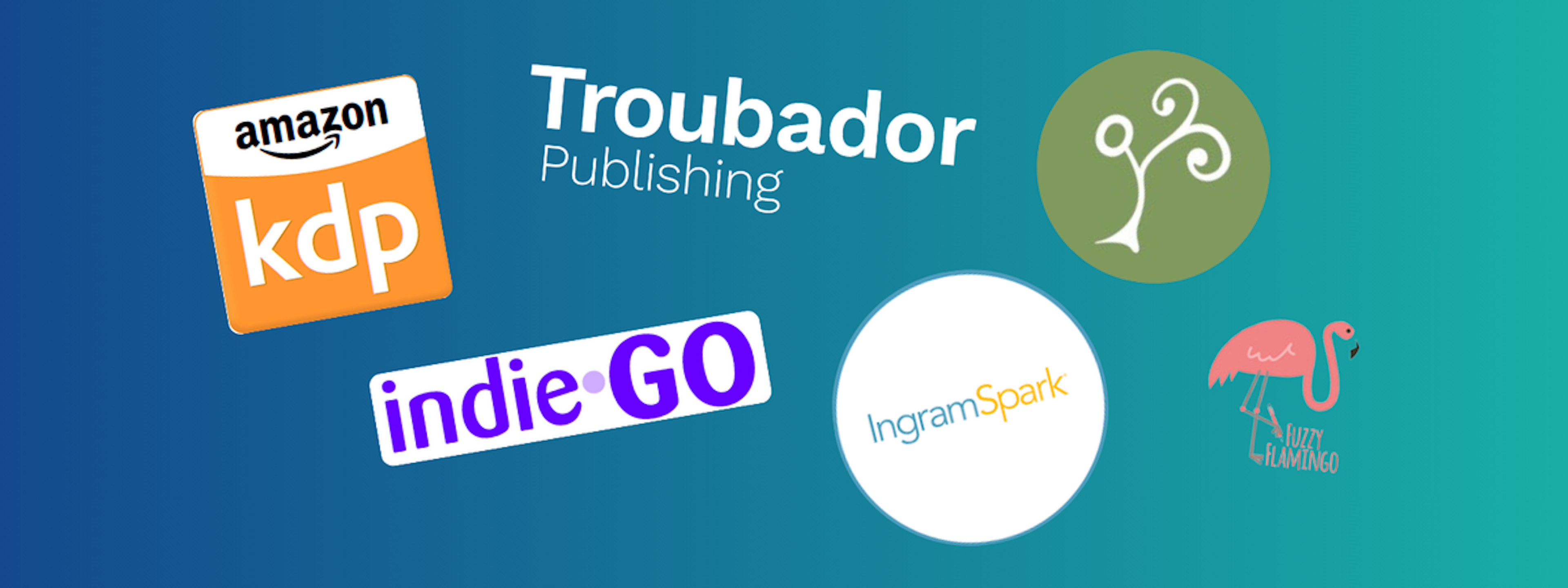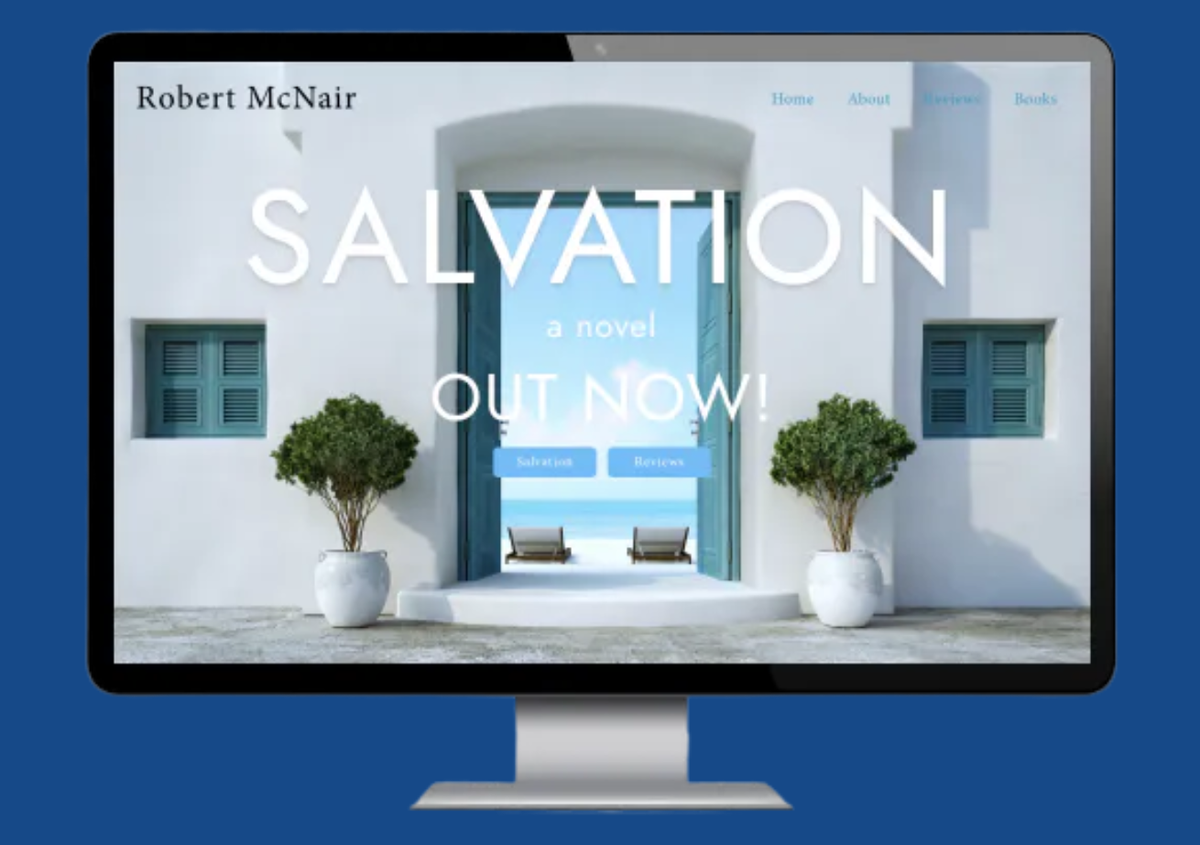
21st February, 2024
10 min read
What is Full-Service Self-Publishing & Why Should an Author Consider It?
Written by:
Alex Thompson
In the ever-evolving landscape of self-publishing, authors are increasingly presented with a variety of options for bringing their literary creations to life. Gone are the days when traditional publishing was the sole route to authorship success. Today, self-publishing has emerged as a viable and empowering alternative, offering authors unprecedented control over their work. Among the myriad of options, full-service self-publishing gives authors access to guidance and expertise that they would not typically get through other routes. But what exactly is full-service self-publishing, and why should authors consider it as an option to take their book to market? Read on to find out.
Defining your measures of success: a crucial first step
Before delving into the intricacies of full-service self-publishing, authors must define their measures of success. Without doing so, authors will become lost and confused by the many different directions they can go in at every stage of publication. An author who has a defined set of publishing objectives that they refer back and stick to at every opportunity will be more likely to result in an author who is happy during and after their publishing journey.
So, take some time and ask yourself: what are your objectives? Do you aspire to reach a wide audience, secure as many sales as possible, or simply share your story with your friends and family? Clarifying your goals lays the foundation for informed decision-making throughout your publishing journey, and overlooking it will likely have a detrimental effect on your publishing journey.
What is full-service self-publishing?
At its core, full-service self-publishing is the process of partnering with a self-publisher who can oversee every aspect of your book's production, promotion, and distribution. Unlike traditional self-publishing, where authors are left to navigate the terrain alone, full-service self-publishing offers comprehensive support at every stage of the publishing process.
To access this kind of service, an author will likely need to work with a self-publisher as opposed to individual contractors or digital-only publishing platforms like Amazon KDP. While those solutions work well for many authors, for those looking to have their projects managed, access the highest quality production, print and distribution services as well as have their royalties managed for them, a specialist publisher will be required.
What should a full-service publisher offer?
Every publisher is different, whether that is the services they offer or the way they work with authors. However, there is a minimum that we think a full-service self-publisher should be able to provide.
Production services
From metadata setup to cover design, and typesetting to printing, book production is the heart of publishing a book. A full-service self-publisher should be able to offer every element of book production as part of their services.
Editorial
Editorial can mean different things in publishing, but as a minimum copy editing, proofreading and opinionated edits should be possible for a full-service provider.
Digital publishing
Whether it is ebooks or audiobooks, digital books are now expected by most readers as an alternative to paperback. A publisher that can’t create these is not a full-service publisher as far as we are concerned.
While not crucial, another service that we provide that we think is becoming more and more important for authors is author websites. In a market where most readers do their research into books and authors online, author websites can either complement or be used instead of social media to boost an author's profile.
Marketing & sales
For those authors wanting to sell their books to the market, trade marketing and publicity are must-have services for a full-service self-publisher. In addition, sales representation in bookshops will give author’s books the best possible chance of being stocked on bookshop shelves.
Distribution and warehousing
With the world of book distribution being a complex and tumultuous one in recent years, a publisher’s ability to store, distribute and fulfil orders for book orders from retailers, wholesalers, bookshops and direct consumers is becoming more and more important. An author that produces the best book possible but has nowhere to store them or have anyone to distribute them on their behalf can quickly find themselves with a very full garage full of books that they can distribute properly!
Royalties management
Keeping track of the sales that your book is making is hard enough, but the world of book royalties is a complex one. A publisher should be able to handle the sales and any returns, and therefore the royalties for authors and ensure that those royalties are regularly passed on to authors. For example, all Troubador author receive their royalties quarterly.
An excellent author journey
We believe fundamentally that publishing a book should be an enjoyable experience for an author. Our project management teams are dedicated to just this - helping an author every step of the way through their publication process and giving them the best possible publishing experience.
And finally...
A quality end product
A publisher that can provide all of the above services and author support should not compromise on the end quality of the product. After all, the end product is the only thing that most readers will see of the book, so it needs to look the part at a glance on a digital or physical bookshop shelf.
A high-quality self-published book shows the author is ambitious, organised and serious. Writers & Artists, 2020
Full-service self-publishing: the pros and cons
As with any publishing route, full-service self-publishing comes with its own set of advantages and drawbacks. The pros of this approach include:
- Expert help every step of the way: No matter what services you opt for, you should be working with an expert.
- One-stop shop: If you don’t want to spend hours searching for the right person/supplier for each element of publishing, full-service self-publishing is for you.
- Author experience (should be) prioritised: This is in contrast to you having to create your own experience by sourcing everything from multiple places if you are not using a full-service provider.
- Time and effort saved: An author doesn't need to source an editor, a designer, or someone to store or distribute your book, saving time and effort throughout the whole publishing process
- You know what you are going to get at every stage: If you have been working with a single publisher to produce your book, you’ll then have a pretty good idea about what it will be like to work with them when they market, sell and distribute it. Fewer surprises, more author control.
On the other hand, the cons include:
- It can be more expensive: The chances are, you’ll need to spend a little more money to work with a full-service provider due to the wide range of services they offer. However, they should be quoted to you bespoke every time. Avoid set packages that may see you buying something you don’t need. Troubador, for example, uses pricing examples to illustrate the approximate cost that an author may incur working with us, but every quote is bespoke the the author’s specific requirements.
- Less choice in the market: Due to the nature of the breadth of services offered, there are fewer options than if you are sourcing individual service providers. Troubador is one of those providers and offers the full suite of services that an author might need for the publishing of their book.
- A contract will likely (and should be) required between publisher and author: Contracts can be scary. Take your time when presented with one. Make sure it has everything you need for your security in it, but also get it checked by those who know what they are talking about.
Remember: Don’t sign any contracts until you know everything you need to, have had all your questions answered and are 100% happy.
Going it alone: the pros and cons
In comparison, going it alone offers its own set of pros and cons. The pros include:
- Having complete control over sourcing suppliers: You will likely need some professional help in some form with at least part of your road to publication. If you are going it alone, you can spend time picking and choosing the suppliers you want to contribute to your project.
- Full control over every element of publishing your book: While any decent self-publishing services provider should only offer ideas and thoughts and not dictate what you want, which is the way Troubador works with authors, by going it alone you will have total control over every element of your project.
- The ability to mix and match the most cost-effective suppliers: Want to get an amazing cover design, but are happy with the quality of your finished product perhaps not being the best it can be? Mixing and matching suppliers allows you the flexibility to hit your goals.
In terms of the cons, they include:
- Very limited assistance: Instead of having an organisation like Troubador assisting you with every element of the publishing process, you will need to decide what you feel confident in and what you need to seek help for. You’ll have no safety net should you not go about something in the correct way. Think about metadata for example - it is a complex and confusing subject without experience, but vital to the success of a book. If an author gets that wrong then it could be catastrophic for their book's sales potential.
- Distribution can be limited: Most self-published authors going it alone don't have access to the kinds of warehousing that a lot of retailers, or publishers with their distribution, offer. Also, if you opt for publishing through Amazon KDP only, then you are restricting yourself to one retailer. Of course, that might be right for you, but it is worth considering in case it isn’t.
- No access to wider expertise: If you are employing a publicist, they will hopefully know everything about publicity. The same with a cover designer. But, what you are not getting, is the ability to ask unrelated questions and be put in contact with someone who can answer those questions from within the same company. We speak with authors daily at Troubador who have questions outside of the remit of the person to whom they are speaking, and we take pride in our ability to put an author in contact with the right person to answer those questions.
- More chance of being let down: The more suppliers you are using for different elements of your book publication, the more chance there is of being let down. If you use the same organisation for everything, you know what you are going to get.
- Complexities of coordinating multiple suppliers: A book has many elements to it from manuscript to market. For an author, managing that whole process and the suppliers within it is time-consuming and laborious. For authors looking for their publishing journey to be as smooth and easy as possible, project management of all the different elements of publishing their book can be daunting.
Depending on the objectives that you set out at the start of your journey, you may already be thinking about which route, full-service or going it alone, is right for you, if either. However, before you decide on any suppliers you might want to work with, you need to be sure that you know what to look out for along the way.
What to watch out for
Navigating the landscape of full-service self-publishing requires vigilance to avoid potential pitfalls. While the below is not a complete list of everything an author should be aware of, it includes the things that we think are essential for an author to understand before committing to any route or supplier.
- Hidden costs: Transparency between publisher and author is key. Authors should scrutinize any potential costs and ensure they are clearly outlined upfront.
- Contractual validity: Before signing on the dotted line, authors must ensure that the contract is transparent, legitimate, and serves their best interests.
- Rights ownership: Authors should retain 100% ownership of their rights, safeguarding their creative autonomy.
- Maintain control: Self-publishing is about author control, not relinquishing it to the publisher.
- Support system: A reputable full-service self-publisher should provide authors with a robust support system, both before and after publication.
- Objective alignment: Authors should choose a publisher whose services align with their objectives, whether it's bookstore distribution or global reach.
Your next steps
Armed with a clear understanding of full-service self-publishing and its implications, authors can now take proactive steps towards their publishing goals. These are my suggested next steps once you have decided which route to take:
- Define your objectives: Clarify your publishing objectives to guide your decision-making process.
- Evaluate options: Consider whether full-service self-publishing aligns with your needs and aspirations.
- Ask questions: Don't hesitate to seek clarification and ask questions before committing.
- Validate contracts: Ensure that any agreements are transparent, fair, and legally sound.
- Sit back and relax: With the right full-service self-publisher by your side, you can embark on your publishing journey with confidence and peace of mind.
Full-service self-publishing offers authors a compelling blend of convenience, expertise, and support, making it a viable option for those seeking to navigate the complexities of the publishing world with ease. By defining your objectives, weighing the pros and cons, and exercising diligence throughout the process, you can maximize your chances of achieving publishing success on your terms.
Most popular articles

Alex Thompson
The 6 Best Self-Publishing Companies in the UK 2024

Stephanie Carr
Unlocking the Power of Personal Branding: Why Author Websites Are Essential for Every Writer

Andrea Johnson
Kindle Direct Publishing (KDP) versus Troubador: What should an author know?

Jane Rowland


